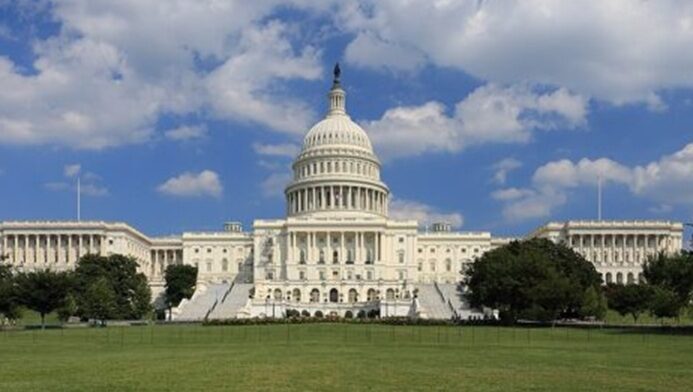Renewable energy industry officials are hopeful that a post-pandemic comeback is possible in 2021, but much will depend on whether the Covid-19 disruption is short lived and on how future pandemic-related legislative activity pans out.
One thing that’s already clear is that the potential for supply chain difficulties cannot be ignored, particularly if there is a post-pandemic surge in demand.
“Supply chain issues haven’t played out yet,” said George Strobel, co-founder and co-CEO of Monarch Capital.
A lot of the materials for projects planned for this year were ordered in 2019. However, in a worrying sign, the virus has forced solar manufacturer SunPower to idle its factories and cut its workforces. Additionally, industry officials are already reporting project delays, and that projects are missing developmental milestones due to state and local permitting delays, having to work projects with smaller crews and difficulties related to traveling to sites, among other issues.
“The impact [of Covid-19] across the supply chain has been widespread,” Bloomberg NEF’s Ethan Zindler, head of Americas said. Two weeks ago, Bloomberg NEF revised this year’s U.S. total new renewable build to 22 GW, down from 27 GW.
So far, rooftop solar has taken the biggest hit. Accordingly, Bloomberg NEF revised its 2020 rooftop solar forecast to 2.5 GW, about a quarter below expectations prior to Covid-19.
The case for an ITC extension
Solar companies are eligible for federal assistance under the U.S. government’s Coronavirus Aid Relief and Economic Security Act (CARES), provided that they meet program requirements. CARES Act programs, however, are not as useful to solar companies as they are to others, because solar projects must also meet time-sensitive tax credit deadlines that Covid-19-related impacts are compromising.
To enable the solar industry to finance and finish existing projects, an extension of commence construction and placed-in-service deadlines – and temporary refundability for tax credits during that time – is needed.
Conceptually, an extension is not a farfetched idea. An extension of the industry’s placed-in-service and commence construction deadlines should not incur additional cost to the federal government; the deadlines exist to give the industry access to the tax credits that Congress has already granted, an industry official explained. To restart effectively, solar developers need shelter-in-place orders lifted and they need access to the tax credits that underpin the financing of their project, he added. An inability to access those tax credits – either because Covid-19 delays pushed them past time-sensitive tax credit deadlines, or because those credits couldn’t be monetized due to an impaired tax equity market – might mean that a project can’t get built.
The solar ITC, which is 26% this year, is scheduled to drop down to 22% next year. According to the current timeline, the ITC for residential solar will disappear in 2022; for utility-scale solar, it will fall to 10% that year.
Hope springs eternal
More than a month into the shutdowns, support for the clean energy sector has not wavered at the state and local levels. Virginia passed The Clean Energy Economy Act, which sets as its goal achieving 100% clean energy by 2050, and New York’s annual budget, which was signed in early April, included legislation that makes renewable energy an integral part of the state’s post-Covid-19 economic recovery.
“Money is still flowing to good opportunities, and there is a lot of appetite [for renewable energy] among the global investor base,” Scott Jacobs, CEO and co-founder of Generate Capital. “The sustainable label helps,” he added.
Post-pandemic corporate interest in renewable power purchase agreements (PPAs) is also unlikely to slow down, in part because of pressure from within firms, Jacobs said. Young people in particular are a huge source of the momentum behind the broad shift from a shareholder world to a stakeholder world, in which a CEO is effectively a company’s social and business leader, he noted.
Since the pandemic began, interest in green bonds has remained healthy, and Morningstar recently reported that sustainable equity funds set a record for flows in the first quarter. Sustainable equity funds also weathered last quarter better than conventional equity funds.
According to analysts, the pandemic might end up elevating environmental, social and governance (ESG) factors in investment decisions. “People are worried about fundamental things – illness and jobs – it creates an opportunity for people to think ethically and long-term,” Ed Rossier, vice president in renewable energy investments at US Bank said. “The health data is starting to show the inequitable impact [of Covid-19]… ESG can play a role in mitigating that,” he added.
This content is protected by copyright and may not be reused. If you want to cooperate with us and would like to reuse some of our content, please contact: editors@pv-magazine.com.







By submitting this form you agree to pv magazine using your data for the purposes of publishing your comment.
Your personal data will only be disclosed or otherwise transmitted to third parties for the purposes of spam filtering or if this is necessary for technical maintenance of the website. Any other transfer to third parties will not take place unless this is justified on the basis of applicable data protection regulations or if pv magazine is legally obliged to do so.
You may revoke this consent at any time with effect for the future, in which case your personal data will be deleted immediately. Otherwise, your data will be deleted if pv magazine has processed your request or the purpose of data storage is fulfilled.
Further information on data privacy can be found in our Data Protection Policy.